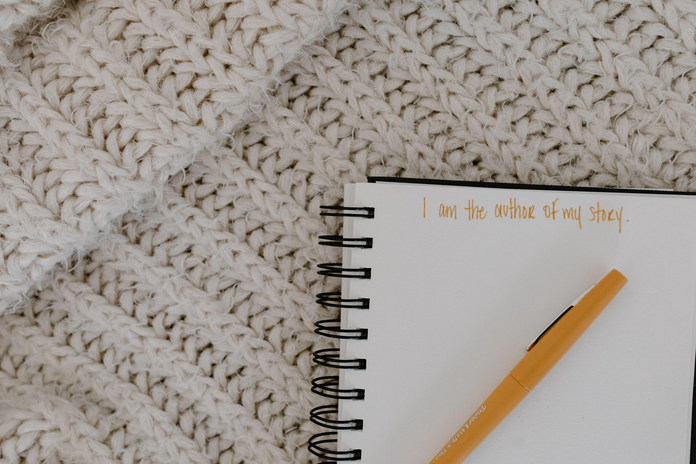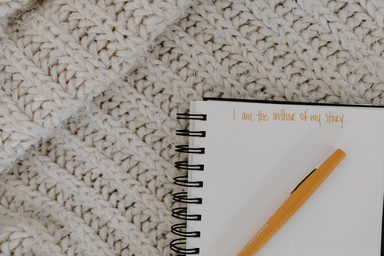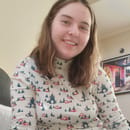Erin Slaughter is the author of two poetry chapbooks, GIRLFIRE and Elegy for the Body, and a poetry book titled I Will Tell This Story to the Sun Until You Remember That You Are the Sun. Earlier this year, Erin announced the forthcoming arrivals of two more works: her second book of poetry and her debut story collection. (Stay tuned for my next article in which I interview Erin about her upcoming publications). More information about Erin and how to obtain her works can be found on her website.
Recently I was granted the opportunity to interview Erin about the hardships she has encountered as a female writer in the creative writing world. Additionally, I asked her for advice on how to get published as a female writer and her experience. To read Erin’s impactful and complete, unedited responses, click here.
Question One: What adversities have you faced as a woman in the creative writing community, and how have you navigated through them?

Erin began by explaining that she has pondered this question extensively for her Ph.D. dissertation. One key emotion she felt as a female writer was inadequacy. She admitted, “These events significantly impacted me, personally and creatively; for a solid year and a half, I felt like I had nothing important to say, or that I wasn’t good enough to write in line with what poetry was ‘supposed to be,’ or that I wasn’t smart enough to deserve to be here.” Furthermore, when she wrote, “openly about [her] bodily and emotional experiences as a woman,” her male counterparts critiqued her. She stated, “There’s this sort of masculinist idea that silence is dignified, and to bleed out all your internal suffering and joy publicly is undignified, but I do not think human beings should have to be silent to retain our dignity, or to be treated with dignity.”
Erin supported her claims with evidence from Maggie Nelson, Adrienne Rich and Audre Lorde in the third paragraph of her response. Additionally, she revealed, “I also got some pushback during this time for writing frequently about the body, because certain men claimed it was ‘too easy’ or ‘overdone’ as a topic.” Erin sums up a likely cause of the issue perfectly, “I think that’s likely because their own bodies are not taken from them, or legislated against them, on a regular basis; they are not socialized to believe their bodies are not their own, and there is not a multi-billion dollar industry invested in making sure they spend a lifetime at war with their bodies; so the body is, for many (though not all) men so inconsequential to their daily existences that the contemplation of it strikes them as menial.”
Later, Erin details other aspects of her background like growing up in a rural Texas town and therefore not being as privileged in the realm of education that other writers have. This caused her to have,“a lot of anxiety about being underprepared and not belonging.” She then thoughtfully describes gender stereotypes forced not only on female writers but women in general. These seemingly required roles involve man’s expectation of female submission, and their projection of inferiority onto women. Erin expressed through these lines, “Most women (myself included) are trained from childhood to apologize for their existence in implicit and explicit ways, and to make themselves smaller than the men in the room. Women are expected always to be pleasant and friendly.” Moreover, Erin asserts that Black and Brown women likely experience these pressures “twofold.” She continued by exemplifying how she and her female peers received a separate lecture during her master’s program on “what neckline and hemlines young women teaching for the first time should fill their wardrobes with, how to respond if a student asks you out, how to respond if a student threatens or assaults you, how to respond if a student tells you you’re not smart enough or hot enough or ‘nice’ enough for him to listen to what you’re there to teach.” In contrast, the male students were not targeted in terms of their clothing or behavior.
Question Two: What advice do you have for female writers wanting to get their work published? What was the initial process like for you?
Erin began by emphasizing the importance of becoming literate in prospective literary journals. She advised, “the Entropy Magazine ‘Where to Submit’ list is where I advise people to start.” In addition, she assured, “I genuinely believe there is a place for every kind of writing, and you just have to find where your writing belongs, and where it will be valued” and “Connecting with editors and readers who value the things you value about your own writing is an amazing gift, and worth waiting for.” Regarding submitting pieces, she disclosed, “being overly-ambitious before you have the skills to back it up is essentially a writer’s rite of passage.” Consequently, though, the more acknowledged the literary magazine is, the more likely you are to receive a rejection letter. So, it’s a good idea to submit to journals that range in popularity. Erin reminded the need to remain humble by asserting, “I don’t think prestige should be the sole aim.”
Erin suggested, “Get very comfortable with rejection, and persist through it. Always expect rejection, and then be pleasantly surprised when an acceptance comes, rather than the opposite.” She believes it’s best to remind yourself that “it’s so often not about you or your talent, but purely about numbers, or the arbitrary preferences of whoever read your submission that day.” Ultimately, it seems that thick skin is vital to being a writer. Other pieces of advice Erin gave include being persistent with sending a surplus of submissions and realizing that, “the path to publication looks different for everyone.” Erin concluded her response with anecdotes about her history with rejection letters and triumph and acknowledged the privileges she does possess. At the heart of it, she best described having success as a writer as, “One-fourth luck, one-fourth craft development and half constant persistence, determination and the action to back it up, spread over the span of many years.”
Want to see more HCFSU? Be sure to like us on Facebook and follow us on Instagram, Twitter, TikTok, YouTube and Pinterest!


